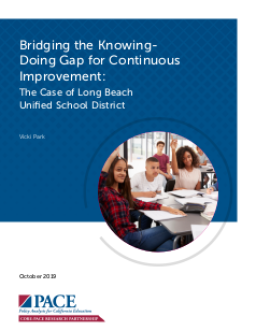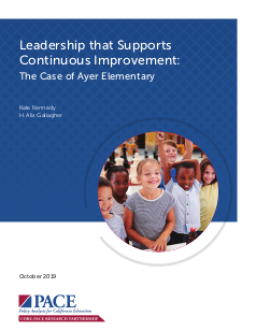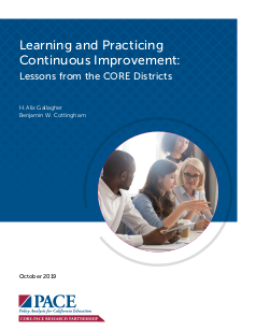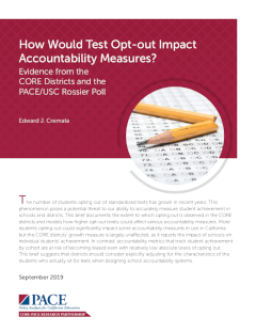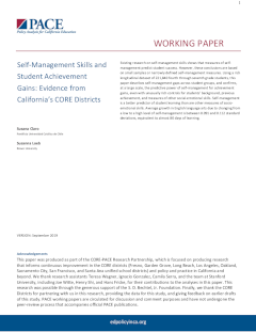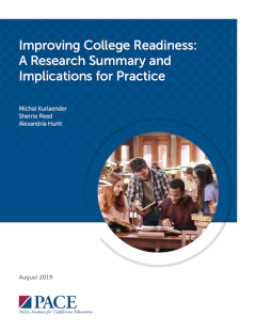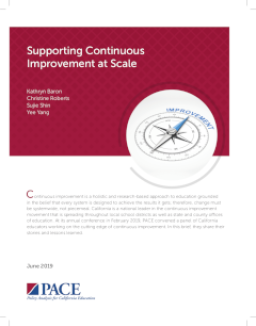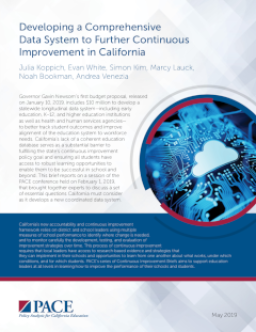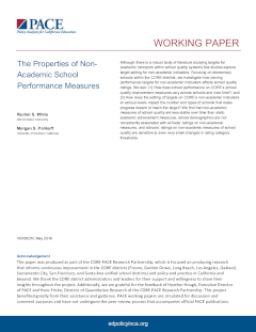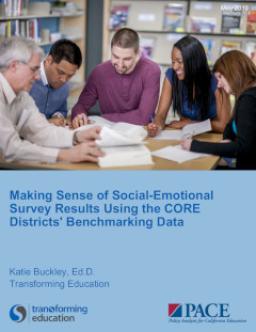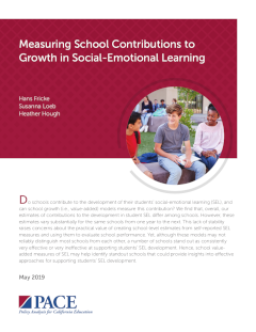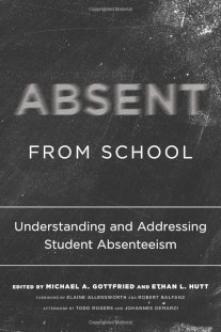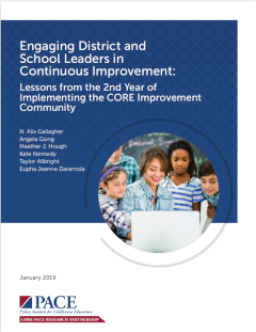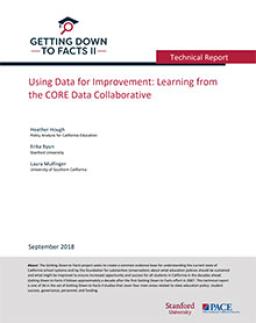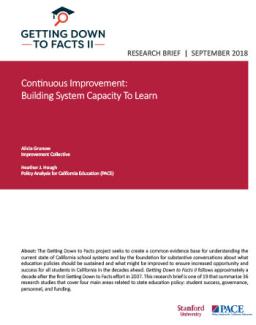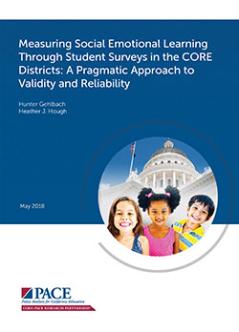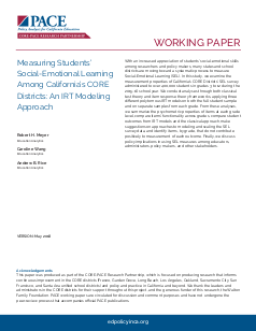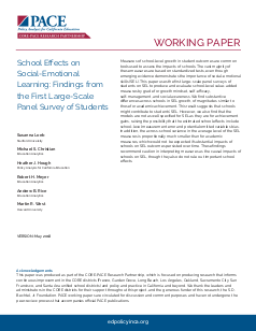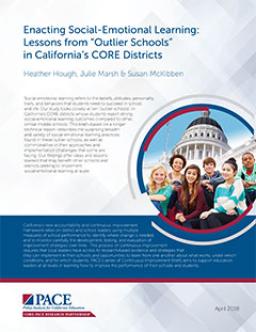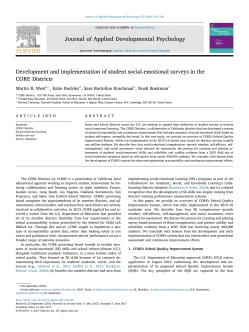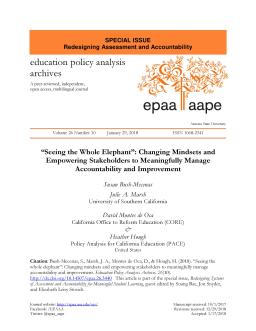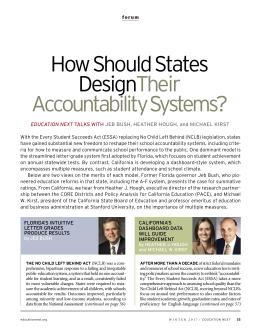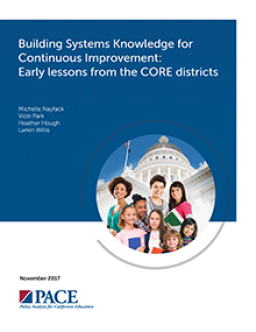Summary
Summary
Summary
This report examines how California's education sector is embracing continuous improvement over standards-based reform. The study presents six lessons learned from PACE and CORE Districts' collaboration on the topic, including the complexity of embedding continuous improvement processes into school norms and the need for deliberate steps to build a culture conducive to continuous improvement. The report provides implications for broader continuous work in California and beyond, with three case studies providing more detail on exemplary practices in two districts and one school.
Summary
The increase in students opting out of standardized tests is a threat to accurately measuring student achievement. This brief examines the effects of opting out in the CORE districts and models how it could affect accountability measures. More opt-outs could significantly impact some metrics, but the growth measure is largely unaffected. Metrics tracking achievement by cohort are at risk of bias, even with low levels of opting out. Adjusting for characteristics of students who take the tests could be a solution.
Summary
Summary
Summary
Summary
Summary
Summary
This report presents benchmarking data on self-report student surveys measuring social-emotional learning (SEL) from nearly half a million students in grades 4 through 12 across 8 CORE districts in California. The data provide means and standard deviations by construct, grade level, and subgroup, and can serve as a proxy for a nationally-normed sample for other schools across the country looking to administer the CORE survey.
Summary
This report examines the stability of school effects on social-emotional learning (SEL) over two years in California's CORE districts. The correlations among school effects in the same grades across different years are positive but lower than those for math and ELA. While these effects measure real contributions to SEL, their low stability draws into question whether including them in school performance frameworks and systems would be beneficial.
Summary
In "Absent from School," PACE Executive Director Heather J. Hough analyzes student absenteeism using data from California's CORE districts. She explores the differences in absenteeism rates among students and schools, comparing them to other performance indicators. Dr. Hough also examines how schools' performance on chronic absence metrics corresponds to other accountability measures, highlighting the implications for reporting school-level measures of chronic absenteeism.
Summary
Summary
Effective data use is crucial for continuous improvement, but there is confusion about how it differs from data use for other purposes. This report explains what data are most useful for continuous improvement and presents a case study of how the CORE data collaborative uses a multiple-measures approach to support decision-making.
Summary
Continuous improvement in education involves engaging stakeholders in problem-solving to discover, implement, and spread evidence-based changes that work locally to improve student success. California sees it as central to enduring education transformation. It requires an initial significant investment in time and money to make it a reality, but can improve education quality. However, California's data systems are inadequate for helping districts monitor progress, and more training and coaching are needed to build expertise for statewide implementation.
Summary
Summary
Summary
Summary
Summary
This study explores ten "outlier schools" in California's CORE districts that have strong social-emotional learning outcomes. The brief and infographic summarize the various practices found in these schools and the common implementation challenges faced. The findings offer lessons that can help other schools and districts implement social-emotional learning at scale.
